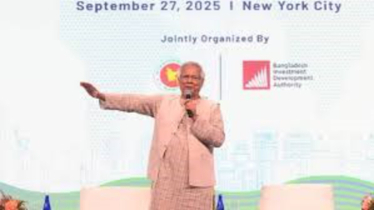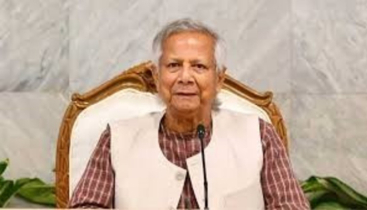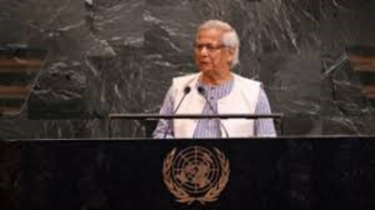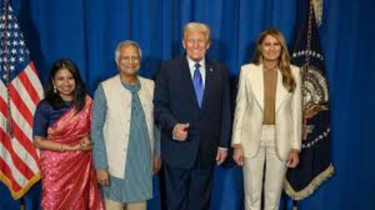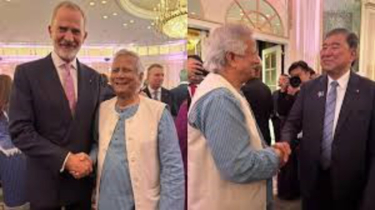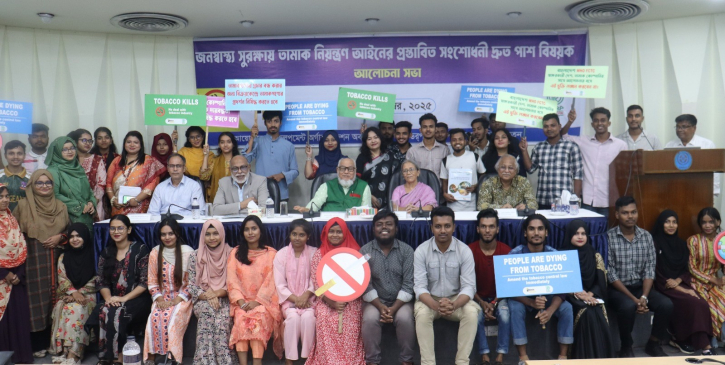
Tobacco companies cannot in any way be stakeholders in the amendment of the Tobacco Control Law, said Farida Akhter, Adviser to the Ministry of Fisheries and Livestock. She stressed that the government will never take such an anti-public interest step, noting that tobacco companies’ manipulations have already delayed the amendment for far too long.
“No more delay is acceptable. Just as the youth of Bangladesh drove fascism out of the country, they must now lead the way in eradicating tobacco,” she urged.
The adviser was speaking as the chief guest at a discussion held on Wednesday (24 September 2025) at the CIRDAP auditorium in the capital. The event, organized by the Development Organisation of the Rural Poor-DORP, was titled “Ensuring Public Health Protection by Passing the Proposed Amendments to the Tobacco Control Law Without Delay.”
The session opened with welcome remarks from A.H.M. Noman, DORP’s founder and chief executive. Zeba Afroza, the organization’s project coordinator, presented the keynote paper, outlining six key proposals aligned with the WHO Framework Convention on Tobacco Control (FCTC). These included abolishing designated smoking areas in public places and transport, banning tobacco product displays at points of sale, prohibiting corporate social responsibility activities by tobacco companies, restricting e-cigarettes to protect youth, ending loose and retail sales of tobacco products, and expanding pictorial health warnings on packaging from 50 percent to 90 percent.
Speaking as special guest, Md. Akhtaruzzaman, Director General of the National Tobacco Control Cell, noted that tobacco use kills 161,000 people annually in Bangladesh — an average of 442 every day — while millions more suffer from tobacco-related illness. He rejected claims by tobacco companies that the amendments would lead to major revenue losses. “In reality, after the law was enacted in 2005 and amended in 2013, government revenue from tobacco increased 12.5 times in 18 years, even as tobacco use fell by 18 percent between 2009 and 2017. This proves reduced tobacco use does not harm government revenue,” he said.
Professor Dr. Golam Mohiuddin Faruq, President of the Bangladesh Cancer Society, criticized a July 13 decision by a review committee that announced plans to invite tobacco industry representatives to stakeholder discussions. He argued this not only raises serious moral and legal concerns but also violates Article 5.3 of the FCTC, which recognizes the inherent conflict between public health and tobacco industry interests.
Former secretary Munshi Alauddin Al Azad echoed these concerns, citing recent comments by Chief Adviser Dr. Muhammad Yunus, who warned that without raising awareness among young people, the future of the next generation would be at risk. “Public health must take priority in the amendment process, not the interests of the tobacco industry. No consultation meeting should be arranged to take their views,” he insisted. He added that the Ministry of Health has already taken steps to implement policies ensuring compliance with Article 5.3, leaving no room for violation.
Youth advocates Ayesha Akhtar Shilpi and Niemur Rahman Emon also spoke at the event, calling for the swift passage of the proposed amendments to protect public health. They demanded that the government refrain from including tobacco industry voices in the lawmaking process.
TH

.png)
